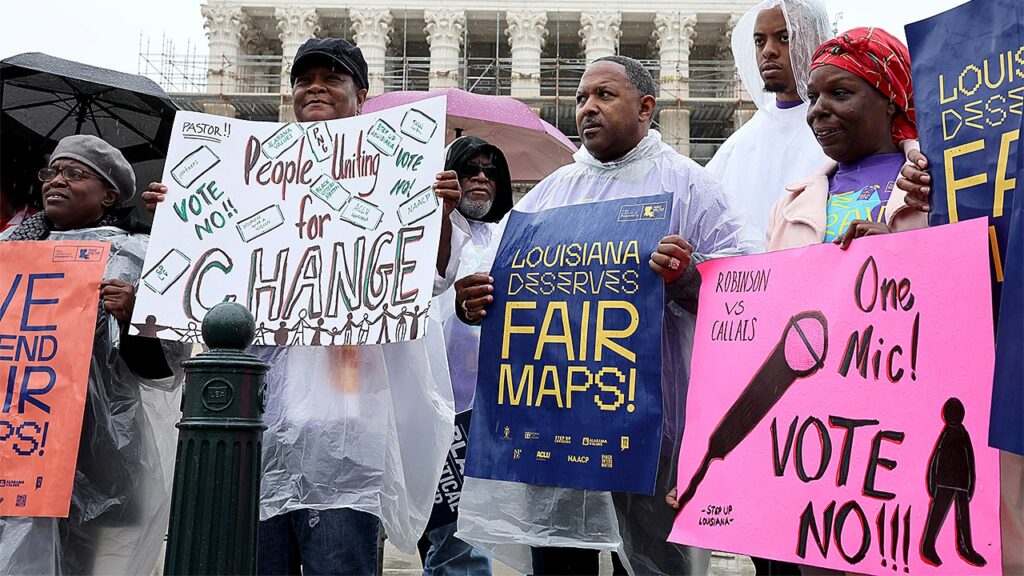NEWYou can now listen to Fox News articles!
The Supreme Court will rehear oral arguments Wednesday in a case centered on Louisiana’s use of race as a factor when drawing its congressional map — a closely watched legal fight that some fear could be used to weaken protections under Section 2 of the Voting Rights Act.
The case, Louisiana v. Callais, was first heard by the high court in March. It focuses on whether Louisiana’s updated 2024 congressional map, which added a second majority-Black district, constitutes an unconstitutional “racial gerrymander.” The outcome could shape how states nationwide apply the Voting Rights Act in redistricting battles ahead of the 2026 midterms.
Justices ordered both parties to reappear in court in the fall to take up additional arguments before the case is decided. They also asked parties to submit additional briefs answering whether the state’s “intentional creation” of the second majority-minority district runs afoul of the 14th and 15th Amendments of the U.S. Constitution.
The court’s ruling could have a major impact on voters ahead of the 2026 midterms, with critics warning that a decision favoring the state may further erode safeguards for minority voters under the Voting Rights Act.
JUDGES SAY THEY’LL REDRWA LOUISIANA CONGRESSIONAL MAP THEMSELVES IF LAWMAKERS CAN’T
Louisiana, for its part, has abruptly changed its position since March.
Louisiana Attorney General Elizabeth Murrill asked the Supreme Court in August to invalidate the 2024 map — an about-face from its earlier position — and urged the justices to rule more broadly that race-based redistricting is unconstitutional.

Murrill said that the 14th Amendment “commands that the government ‘may never use race as a stereotype or negative.’ Yet race-based redistricting rests on an invidious stereotype: that all minorities, by virtue of their membership in their racial class, think alike and share the same interests and voting preferences.”
“Race-based redistricting is fundamentally contrary to our Constitution,” she said.
A group of Black voters and civil rights groups, meanwhile, urged the court to leave in place the newer map, which it said “comport[s] with the Fourteenth and Fifteenth Amendment guarantees of equal voting rights and the VRA’s requirements.”
NEW MAJORITY-BLACK LOUISIANA HOUSE DISTRICT REJECTED, NOVEMBER ELECTION MAP STILL UNCERTAIN
Louisiana has redrawn its congressional map twice since the 2020 census. The first version — which included only one majority-Black district — was blocked by a federal court and later by the Fifth Circuit Court of Appeals in 2022.
Both courts sided with the NAACP voters, and the Fifth Circuit ordered the state to adopt by January 2024 a new state redistricting map.
The Supreme Court’s request for additional arguments comes at a pivotal time, as several Republican-led states have attempted to aggressively push through new congressional maps of their own.
They also argued in filings to the Supreme Court that non-Black voters failed to show the direct harm required for equal protection claims or prove race was the main factor in redrawing the map.
Read the full article here

